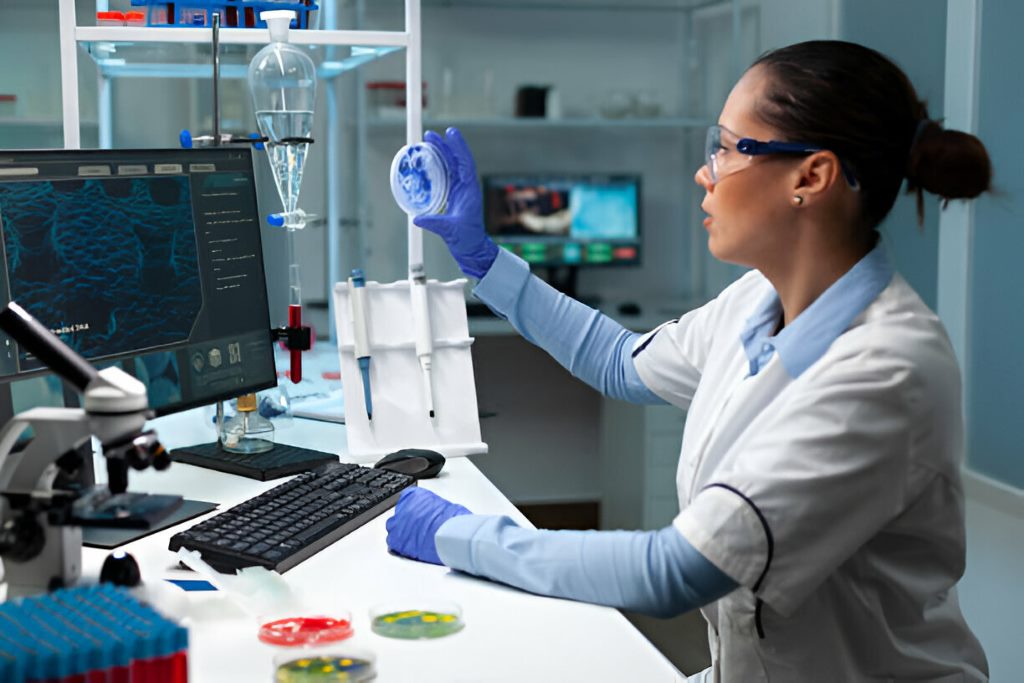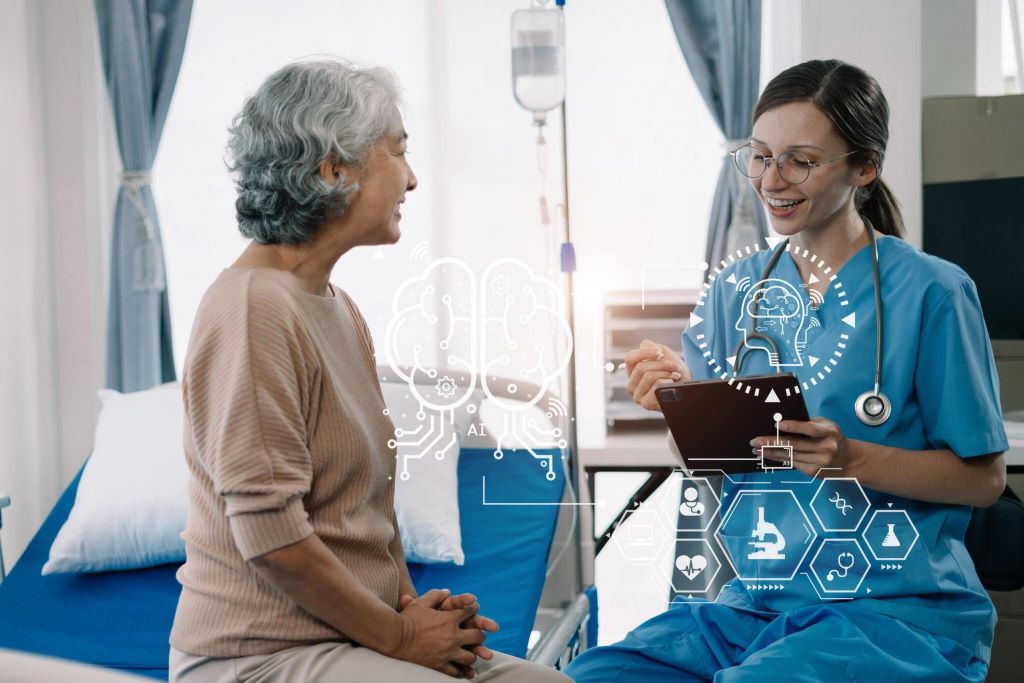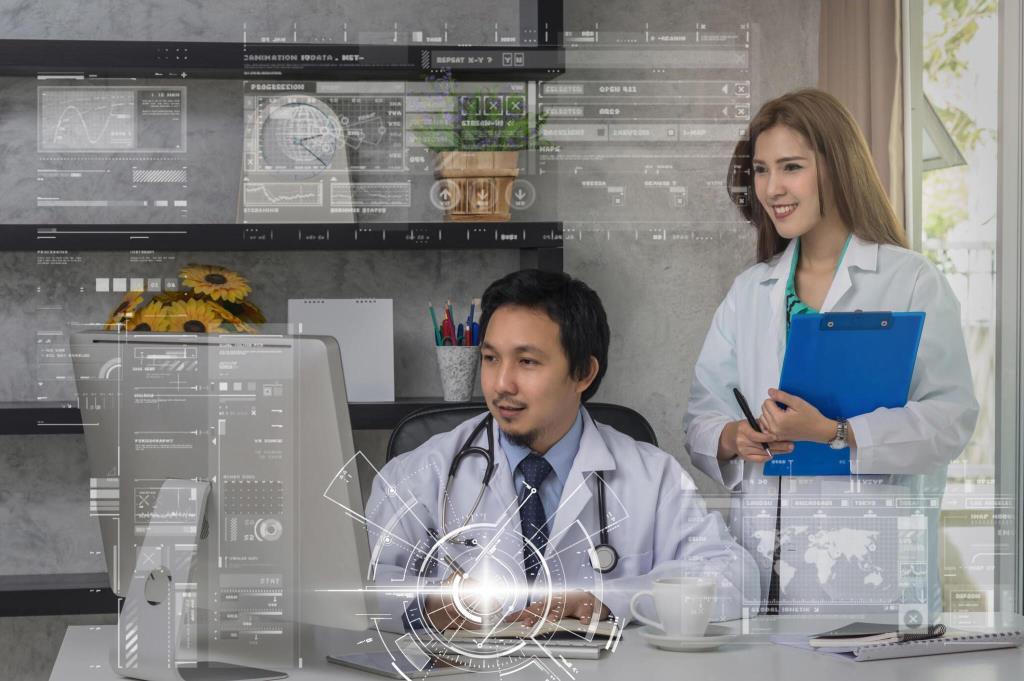In the ever-evolving landscape of healthcare, the integration of Artificial Intelligence (AI) has emerged as a transformative force, particularly in the realm of diagnosis. AI-powered diagnostic tools are revolutionizing the way diseases are identified and treated, offering unparalleled levels of accuracy and efficiency.
This article explores the profound impact of AI-powered diagnosis on healthcare, highlighting its role in enhancing accuracy, improving patient outcomes, and streamlining healthcare delivery processes.
The Evolution of Diagnosis with AI
Artificial Intelligence (AI) has transformed the landscape of healthcare diagnosis, revolutionizing traditional methods and introducing unprecedented levels of accuracy and efficiency. AI medical diagnosis, also known as artificial intelligence-assisted diagnosis, is a rapidly evolving field that holds immense promise for revolutionizing healthcare.
Let’s delve into the evolution of diagnosis with AI, highlighting key advancements and their impact on healthcare delivery:
1. From Traditional Methods to AI
Traditionally, healthcare diagnosis has relied on manual interpretation of medical images, laboratory tests, and clinical data by healthcare professionals. While effective, these methods are prone to human error and can be time-consuming.
With the advent of AI, diagnostic processes have undergone a significant transformation. AI-powered algorithms can analyze vast amounts of patient data with speed and precision, leading to more accurate and efficient diagnosis of various medical conditions.
2. Advancements in Medical Imaging
Medical imaging plays a crucial role in diagnosing a wide range of medical conditions, from fractures and tumors to cardiovascular diseases. AI-powered diagnostic tools have significantly enhanced the accuracy and efficiency of medical imaging interpretation.
Machine learning algorithms can analyze medical images, such as X-rays, MRIs, and CT scans, to detect abnormalities, identify patterns, and assist healthcare providers in making more informed diagnostic decisions.
Enhancing Accuracy in Diagnosis
Artificial Intelligence (AI) has emerged as a game-changer in enhancing the accuracy of medical diagnosis, offering healthcare providers invaluable support in detecting abnormalities and making more precise diagnostic decisions.
1. Improved Detection of Abnormalities
AI-powered diagnostic tools excel in detecting subtle abnormalities and patterns that may be overlooked by human observers.
By analyzing medical images and patient data, AI algorithms can identify early signs of disease, enabling healthcare providers to intervene proactively and initiate timely treatment. This enhanced detection capability leads to more accurate diagnoses, earlier intervention, and improved patient outcomes.
2. Differential Diagnosis Support
AI-powered diagnostic systems can provide valuable support in the process of differential diagnosis, where healthcare providers must distinguish between multiple possible causes of a patient’s symptoms.
By analyzing patient data, medical history, and clinical guidelines, AI algorithms can generate differential diagnoses and rank them based on likelihood, helping healthcare providers make more informed diagnostic decisions and select appropriate treatment plans.
Improving Efficiency in Healthcare Delivery
Artificial Intelligence (AI) is not only enhancing the accuracy of diagnosis but also revolutionizing the efficiency of healthcare delivery. By streamlining diagnostic workflows and reducing turnaround times, AI-powered solutions are optimizing resource utilization and enhancing the overall efficiency of healthcare systems.
1. Streamlining Diagnostic Workflows
AI-powered diagnostic tools streamline diagnostic workflows, enabling healthcare providers to interpret medical images and analyze patient data more efficiently. AI algorithms help healthcare providers prioritize cases, reduce turnaround times, and improve overall workflow efficiency. This allows healthcare organizations to handle larger volumes of cases while maintaining high standards of care.
2. Reducing Diagnostic Errors
Diagnostic errors can have significant consequences for patient safety and outcomes. AI-powered diagnostic tools are designed to minimize diagnostic errors by providing healthcare providers with additional support and insights during the diagnostic process.
By flagging potential abnormalities, highlighting relevant clinical information, and providing decision support recommendations, AI algorithms help healthcare providers avoid common pitfalls and make more accurate diagnostic decisions.
Challenges and Considerations
While Artificial Intelligence (AI) holds immense promise in revolutionizing healthcare diagnosis, its adoption also presents a set of challenges and considerations that must be addressed to ensure successful integration and implementation.
From data privacy to regulatory compliance, healthcare organizations must navigate various hurdles to maximize the benefits of AI-powered diagnosis. Here are some key challenges and considerations:
1. Data Privacy and Security
The widespread adoption of AI-powered diagnostic tools raises concerns about data privacy and security. Healthcare organizations must implement robust data protection measures to safeguard patient information from unauthorized access, breaches, and cyberattacks.
This includes encryption, access controls, and secure data storage protocols to ensure patient confidentiality and compliance with regulatory requirements.
2. Integration with Clinical Workflow
Integrating AI-powered diagnostic tools into existing clinical workflows can be challenging. Healthcare providers may encounter resistance to change or face technical barriers when implementing new technology solutions.
Successful integration requires collaboration between healthcare professionals, IT specialists, and AI developers to ensure seamless adoption and integration into clinical practice.
Conclusion
In conclusion, AI-powered diagnosis is revolutionizing healthcare by enhancing accuracy and efficiency in the diagnostic process. From improved detection of abnormalities to streamlined diagnostic workflows,
AI-powered diagnostic tools offer unprecedented capabilities to healthcare providers, leading to more accurate diagnoses, earlier intervention, and improved patient outcomes. While challenges such as data privacy and integration remain, the potential benefits of AI-powered diagnosis are vast, paving the way for a future where healthcare delivery is more accurate, efficient, and patient-centered.












